Does Invisalign Give You a Lisp? (How to Overcome)
Last Updated on April 21, 2024 by Gio Greenard
We know, your smile is priceless, and you’ve decided to invest in it with the futuristic solution of Invisalign. It’s normal that you would have some doubts and one of the burning questions might be, “Will wearing Invisalign give me a lisp?” We applaud your curiosity and step forward to shed light on this common concern. In this article, we’ll break down this popular query, presenting facts to dispel myths and to empower you to make an informed decision that works best for you.
- When can I expect changes in my speech?
- Is this change permanent?
- How can I mitigate these changes?
Let’s embark on this transparent exploration of Invisalign and its potential speech effects together.
Why Does Invisalign Cause a Lisp?
The slight lisp that some people experience after wearing Invisalign is mainly due to your tongue getting used to the presence of the aligner. When we speak, our tongue moves and hits the back of our teeth in specific positions to produce certain sounds. Adding just a fraction of a millimeter to your teeth’s surface can alter these positions, thereby affecting sounds produced during speech.
Does Everyone Experience a Lisp With Invisalign?
The idea of experiencing a lisp because of Invisalign might stir up some concerns. However, it’s pertinent to note that not every individual who gets Invisalign braces experiences a lisp. The adjustment period and the way the aligners fit in your mouth largely determine if you’ll have a lisp or not.
Everyone’s mouth structure is unique, and so is the way they adapt to wearing aligners. Due to this uniqueness, some may acquire a slight lisp initially, while others may not notice any change in their speech.
The nature and degree of the lisp also vary greatly from one person to the next. For a few, the lisp might be extremely subtle, practically unnoticeable. For others, it may take the form of a more pronounced speech alteration, particularly during the initial adjustment phase.
How to Overcome the Invisalign Lisp?
- Practice: By speaking more with the aligners on, your tongue can adapt quickly to the new dental setup.
- Pronunciation Exercises: Doing exercises that involve the sounds you have trouble with can help your tongue adjust faster.
- Consistent Wearing: The more consistently you wear your aligners, the quicker your speech will normalize.In conclusion, while it’s possible Invisalign may temporarily affect your speech, it is not a permanent issue and can be managed effectively. So, if you’re considering Invisalign treatment, don’t let fear of a temporary lisp stall your pursuit for straighter teeth and a healthier, more confident smile.
Will My Speech Be Affected By Invisalign?
Often lisping can be most apparent with the sound “s” or “sh” or”Th” or “Ch.” If you use rubber bands for any reason, you might find your mouth snapping back. Again, this is as temporary as the lisp.
How Long Does It Take For Lisp To Go Away With Invisalign?
You might even notice you are speaking with a lisp when wearing the aligners the first few days. It can take a little longer for you before you are used to it. Often people have sore tongues that subconsciously shift over to the aligners.
The severity and duration of the lisp can vary from person to person.
Can Aligners Fix a Lisp?
If you have a lisp already, Invisalign has been known to correct the jawline and eliminate the speech issue. Structural issues in the jaw are a common cause of lisping. correcting this corrects the tongue placement within the mouth.
At Home Lisp Reduction Exercises
You can rid any lisp with a healthy reduction exercise routine. There are a few ways to train your mouth:
- Up and down and side-by-side movement training will strengthen your tongue
- Practice sounds like “Z”, “S”, “Th”, or “Ch” with your tongue pressed downward
- Enunciate phrases. Repeat sentences or quotes that contain vowels and syllables
- Drink with a straw. Your tongue is naturally positioned down allowing no intrusion on the tongue or aligner surfaces.
Are There Any Scientific Studies Linking Invisalign Use To Speech Impediments?
Debunking the myth, recent studies reveal that Invisalign may cause a temporary lisp in some patients, but it’s neither persistent nor universal. Most patients adapt to the aligners within a week, finding any initial lisping quickly fading.
According to research by the Journal of Clinical Orthodontics, about 93% of users initially experienced some degree of lisping during their first week. However, speech normalization typically occurred swiftly[1].
Furthermore, a study from the American Journal of Orthodontics and Dentofacial Orthopedics advises sipping water and performing jaw exercises to aid in faster adaptation[2].
As research by The Angle Orthodontist highlights, the perception of a lisp may be more significant to the patient than listeners[3].Chatting with friends, family or even pets can expedite adapting to the new oral environment.
Conclusion
In summary, while Invisalign may initially cause lisping, it’s important to remember that every case is unique. Most users find the slight speech alteration temporary, frequently resolving as your tongue and mouth adapt to the aligners. Helpful strategies often include practicing speech exercises, using straws for sipping, and even giving your jaw a good massage. After all, patient education is vital to outmaneuvering potential hitches on your journey to a perfect smile. So don’t let the fear of a lisp deter you from acquiring your dream smile.
Remember better safe than sorry, it’s recommended to schedule a risk-free consultation to assess your individual needs. Talk to your family, friends, and even pets, or talk to yourself! It’s part of the adjustment process. Book your appointment today and take the first step towards a radiant smile that boosts your confidence.
Beach Braces is amongst the top level of Invisalign providers and the doctor and her team know everything about lisping, speech impediments, speech difficulties when undergoing Invisalign treatment.
They have the experience and dedication to any dental appliance including traditional braces to give you and your child the best possible service. If you have any further questions you can contact us TODAY.

Dr Patti Panucci attended the University of Louisville School of Dentistry for four years, where she graduated with a DMD degree (May 2000) among the Top 10 in her class. Following that, she headed west to Los Angeles to complete her three-year residency at one of the top-ranked orthodontic programs in the country – the University of Southern California.
Along with her certificate in orthodontics, Dr. Panucci earned a master’s degree in craniofacial biology. During those three years, she fell in love with Southern California beach life and decided that this was where her future lay.
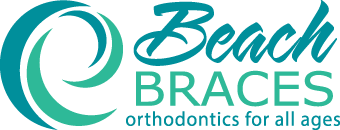


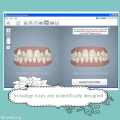

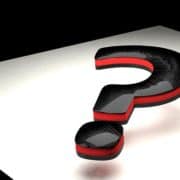
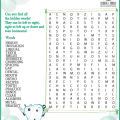
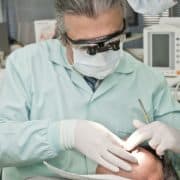


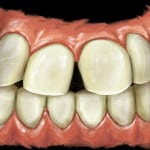
Trackbacks & Pingbacks
[…] Last Updated on February 15, 2022 by Gio Greenard […]
Leave a Reply
Want to join the discussion?Feel free to contribute!